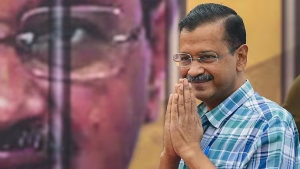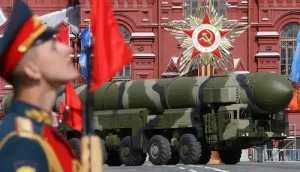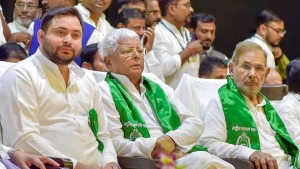In a pivotal moment for Indian politics, Prime Minister Narendra Modi is on the cusp of securing an unprecedented third term, with early results from the 2024 Lok Sabha elections indicating the NDA coalition is nearing the 300-seat mark. This outcome not only solidifies Modi’s political stature but also heralds significant shifts within the Indian electoral landscape.
Addressing the nation from the BJP headquarters in New Delhi, Modi was swift to attribute his anticipated victory to the spirit of democracy. “Today’s victory is a victory of the world’s biggest democracy,” he declared, acknowledging the mandate with a mix of humility and resolve. This statement resonated deeply, reflecting a broader consensus and the pivotal role of democratic engagement in India.
Despite the BJP falling short of its ambitious 370-seat target and the NDA’s aspiration of surpassing 400 seats, the results painted a complex picture of regional dynamics and voter preferences. Notably, the BJP faced setbacks in Uttar Pradesh, a crucial state that commands 80 seats. Here, the opposition INDIA bloc, consisting of the Samajwadi Party and Congress, made significant inroads, a stark contrast to previous elections where the BJP had dominated.
The narrative was similar in other battleground states. In West Bengal, despite high hopes, the BJP trailed behind Mamata Banerjee’s Trinamool Congress, which managed to reclaim its stronghold. Maharashtra also echoed sentiments of political reevaluation, with voters evidently expressing dissatisfaction towards local political machinations involving the Shiv Sena and the Nationalist Congress Party.
Nevertheless, the BJP found solace in states like Odisha, Karnataka, and Andhra Pradesh, where it either retained dominance or made notable gains. Particularly in Andhra Pradesh, the BJP’s ally, Chandrababu Naidu, is expected to celebrate a sweeping victory, demonstrating the coalition’s enduring appeal in parts of the south.
As Modi prepares for another term, his victory tweet encapsulates the mood of triumph and responsibility. “People have placed their faith in NDA, for a third consecutive time! This is a historical feat in India’s history. I bow to the Janata Janardan for this affection and assure them that we will continue the good work done in the last decade to keep fulfilling the aspirations of people.”
The 2024 election was characterized by its intensity and the enigmatic mood of the electorate. Early exit polls had predicted a more comfortable margin for the NDA, a forecast that faced skepticism given the varying accuracy of such polls in past elections. On the ground, the BJP leveraged its well-oiled election machinery, focusing on development, economic issues, and nationalistic undertakings like the scrapping of Article 370 and the construction of the Ayodhya Ram Temple.
Conversely, the opposition, learning from past disarray, presented a more united front. Their criticisms and calls for constitutional and social reforms struck a chord with many, influencing voter sentiment and shaping the electoral discourse.
As Modi steps into a historic third term, the landscape of Indian politics stands profoundly altered. The election not only reaffirms his political mandate but also underscores the evolving dynamics of voter engagement and regional politics in shaping the future of the world’s largest democracy.














